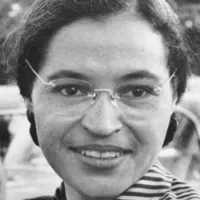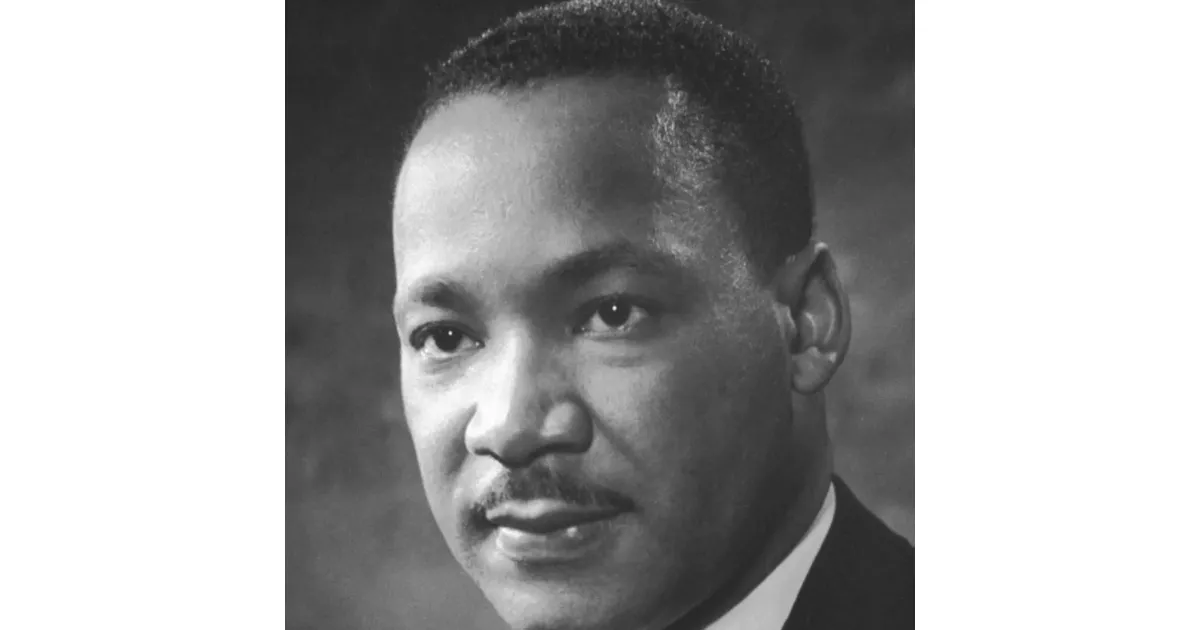A closer look at the lasting mark left by Martin Luther King Jr.—a timeline of influence.
Martin Luther King Jr. was a pivotal leader in the American civil rights movement from 1955 until his assassination in 1968. As a Baptist minister and political philosopher, he championed civil rights for people of color through nonviolent resistance and civil disobedience. His activism targeted Jim Crow laws and other discriminatory practices, aiming to achieve equality and justice for all Americans. King's commitment to nonviolence and his powerful rhetoric made him an iconic figure in the fight against racial segregation and discrimination.
1964: Impact of "I Have a Dream" Speech
In 1964, Martin Luther King Jr.'s "I Have a Dream" speech was recognized as one of the finest in American oratory. The March on Washington and the speech helped to put civil rights at the top of the agenda of reformers and facilitated the passage of the Civil Rights Act of 1964.
1964: Civil Rights Act of 1964
In 1964, the Civil Rights Act was legislated, achieving pivotal legislative gains in the civil rights movement.
1965: Advocacy for Compensatory Programs
In a 1965 interview conducted for Playboy, Martin Luther King Jr. stated that black Americans and other disadvantaged Americans should be compensated for historical wrongs. He proposed a government compensatory program of $50 billion over ten years to all disadvantaged groups.
1967: Encouragement to Nichelle Nichols to Stay on Star Trek
In 1967, Martin Luther King Jr. convinced actress Nichelle Nichols to remain on the science-fiction television series Star Trek after she planned to leave. He explained that her character signified a future of greater racial cooperation and was an inspiration.
1967: King receives honorary degree from Newcastle University
In 1967, Martin Luther King Jr. made his final visit to the UK to receive an honorary degree from Newcastle University.
February 4, 1968: King's Last Sermon Played at Funeral
On February 4, 1968, at his widow's request, Martin Luther King Jr.'s last sermon at Ebenezer Baptist Church was played at his funeral.
1968: World Constituent Assembly Convened
As a result of Martin Luther King Jr. signing an agreement to convene a convention for drafting a world constitution, in 1968 a World Constituent Assembly convened to draft and adopt the Constitution for the Federation of Earth.
1968: Congress passed the Civil Rights Act of 1968
Days after King's assassination, in 1968, Congress passed the Civil Rights Act of 1968. Title VIII of the Act, commonly known as the Fair Housing Act, prohibited discrimination in housing. Also in 1968, teacher Jane Elliott conducted her first "Blue Eyes/Brown Eyes" exercise to help students understand King's death related to racism.
1968: Civil Rights Act of 1968 spurred by assassination
In 1968, Martin Luther King Jr.'s assassination helped to spur the enactment of the Civil Rights Act of 1968.
1968: Fair Housing Act of 1968
In 1968, the Fair Housing Act was legislated, achieving pivotal legislative gains in the civil rights movement.
December 30, 1969: Martin Luther King Fund and Foundation Set Up
On December 30, 1969, The Martin Luther King Fund and Foundation in the UK was set up as a charity following King's assassination and Coretta King's visit to the UK.
1970: Formation of International Personnel (IP)
In 1970, International Personnel (IP), an employment agency, was formed out of the Martin Luther King Fund and Foundation's base in Balham to find employment for professionally qualified black people.
1971: Establishment of Martin Luther King Jr. Day
Beginning in 1971, Martin Luther King Jr. Day was established as a holiday in cities and states, honoring his legacy.
1971: Cities and states start establishing annual holidays to honor King
Beginning in 1971, cities and states started establishing annual holidays to honor Martin Luther King Jr.
1975: Church Committee Investigation Findings
In 1975, the Church Committee, a U.S. Congress investigation, found that from December 1963 until his death in 1968, Martin Luther King Jr. was the target of an intensive campaign by the Federal Bureau of Investigation to 'neutralize' him as an effective civil rights leader.
1976: FBI Acknowledgment of No Evidence of Communist Involvement
By 1976, the FBI acknowledged that it had not obtained any evidence that Martin Luther King Jr. himself or the SCLC were actually involved with any communist organizations, despite extensive surveillance.
1977: Sealing of FBI Surveillance Recordings and Transcripts
In 1977, Judge John Lewis Smith Jr. ordered the recorded audiotapes and written transcripts resulting from the FBI's electronic surveillance of Martin Luther King Jr. between 1963 and 1968 to be sealed from public access in the National Archives until 2027.
1977: Posthumous Presidential Medal of Freedom
In 1977, Martin Luther King Jr. was posthumously awarded the Presidential Medal of Freedom, honoring his legacy.
1977: Reinterment at the Martin Luther King Jr. National Historical Park
In 1977, Martin Luther King Jr.'s remains were transferred to a tomb on the site of the Martin Luther King Jr. National Historical Park.
November 2, 1983: Federal Holiday Created
On November 2, 1983, President Ronald Reagan signed a bill creating a federal holiday to honor Martin Luther King Jr.
January 20, 1986: First Observance of Martin Luther King Jr. Day
Observed for the first time on January 20, 1986, the Martin Luther King Jr. Day federal holiday took place.
1986: First Federal Observance of Martin Luther King Jr. Day
In 1986, the federal holiday honoring Martin Luther King Jr. was first observed, solidifying his national recognition.
1992: Holiday observation following 1992 George H. W. Bush proclamation
Following President George H. W. Bush's 1992 proclamation, the Martin Luther King Jr. holiday is observed on the third Monday of January each year.
November 18, 1996: Foundation Removed from Charity Commission List
On November 18, 1996, The Martin Luther King Fund and Foundation was removed from the Charity Commission list because it had ceased to exist.
1999: New Hampshire recognizes Martin Luther King Jr. Day
In 1999, New Hampshire was one of the last states to recognize the Martin Luther King Jr. Day holiday.
January 17, 2000: Martin Luther King Jr. Day Observed in All Fifty U.S. States
On January 17, 2000, for the first time, Martin Luther King Jr. Day was officially observed in all fifty U.S. states.
2000: Person of the Century poll
In 2000, Martin Luther King Jr. was voted sixth in an online "Person of the Century" poll by Time Magazine.
2003: Posthumous Congressional Gold Medal
In 2003, Martin Luther King Jr. was posthumously awarded the Congressional Gold Medal, recognizing his contributions.
2006: Coretta Scott King's Death and Establishment of the King Center
In 2006, King's wife, Coretta Scott King, passed away. In that same year, she had established the King Center in Atlanta, Georgia, dedicated to preserving his legacy.
2007: Yolanda King's Death
In 2007, King's daughter Yolanda King, a motivational speaker, author and founder of Higher Ground Productions, passed away.
2010: Martin Luther King III Becomes President of the King Center
In 2010, Martin Luther King III became the president of the King Center.
2011: Dedication of the Martin Luther King Jr. Memorial
In 2011, the Martin Luther King Jr. Memorial on the National Mall in Washington, D.C., was dedicated, commemorating his contributions.
2012: Bernice King Becomes CEO of the King Center
In 2012, King's youngest child, Bernice King, became the CEO of the King Center.
2014: Release of Full FBI Letter and Yale Professor's Analysis
Upon the release of the full FBI letter in 2014, Yale history professor Beverly Gage noted in a New York Times article that the claim that the FBI "simply meant to push King out, not induce suicide" was a possibility. Gage points out that another uncovered portion of the note praises "older leaders" like the N.A.A.C.P. executive director Roy Wilkins, urging King to step aside and let other men lead the civil rights movement."
April 20, 2016: Redesign of U.S. Currency
On April 20, 2016, Treasury Secretary Jacob Lew announced that the $5, $10, and $20 bills would undergo redesign prior to 2020, including images from King's "I Have a Dream" speech on the reverse of the $5 bill.
September 9, 2016: King Canonized by Holy Christian Orthodox Church
On September 9, 2016, Martin Luther King Jr. was canonized by Archbishop Timothy Paul of the Holy Christian Orthodox Church. His feast day was set as April 4, the date of his assassination.
2017: Declassification of CIA Files
In 2017, CIA files were declassified, revealing that the agency was investigating possible links between Martin Luther King Jr. and Communism following a 1964 Washington Post article.
2017: Statue of King Unveiled at Newcastle University
In 2017, Newcastle University unveiled a bronze statue of Martin Luther King Jr. to celebrate the 50th anniversary of his honorary doctorate ceremony. The Students Union also voted to rename their bar "Luther's".
2020: Redesign of U.S. Currency
By 2020, the $5, $10, and $20 bills were scheduled to be redesigned, including images from King's "I Have a Dream" speech on the reverse of the $5 bill.
2024: Dexter King's Death
In 2024, King's son Dexter King, who served as the chairman of the King Center until 2010, passed away.
January 23, 2025: Declassification of Assassination Records
On January 23, 2025, President Donald Trump signed an Executive Order declassifying the records concerning the assassination of Martin Luther King Jr.
2027: Scheduled Release of FBI Surveillance Recordings
In 1977, Judge John Lewis Smith Jr. ordered the recorded audiotapes and written transcripts resulting from the FBI's electronic surveillance of Martin Luther King Jr. between 1963 and 1968 to be sealed from public access in the National Archives until 2027.
Mentioned in this timeline

Donald John Trump is an American politician media personality and...

John F Kennedy JFK was the th U S President...

Jesse Jackson is an American civil rights activist politician and...

Rosa Parks an American civil rights activist is renowned for...
The Union of Soviet Socialist Republics USSR existed from to...
India officially the Republic of India is a South Asian...
Trending

57 minutes ago Selena Gomez's Spiced-Plum Manicure and TikTok Clone Theory Spark Buzz

57 minutes ago Kit Harington and Sophie Turner Gag After On-Screen Kiss in New Movie

57 minutes ago Trump administration updates, Iran nuclear efforts, and White House controversies unfold.

58 minutes ago Dario Amodei Highlights India's Central Role in Shaping AI's Future at AI Summit.

2 hours ago Yoon Suk Yeol, South Korean ex-president, receives life sentence for insurrection and martial law.

4 hours ago Maya Hawke and Christian Lee Hutson celebrated wedding with Stranger Things cast present.
Popular

Jesse Jackson is an American civil rights activist politician and...
Randall Adam Fine is an American politician a Republican who...

Pam Bondi is an American attorney lobbyist and politician currently...

Barack Obama the th U S President - was the...

Martin Luther King Jr was a pivotal leader in the...

Ken Paxton is an American politician and lawyer serving as...
